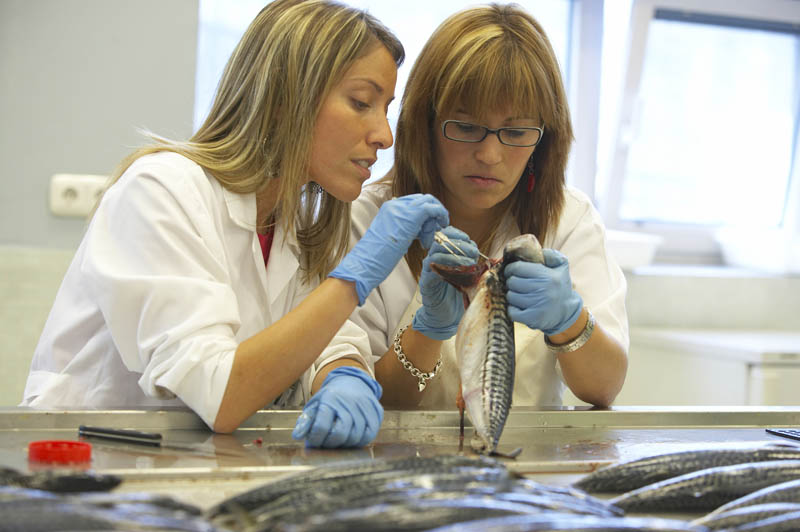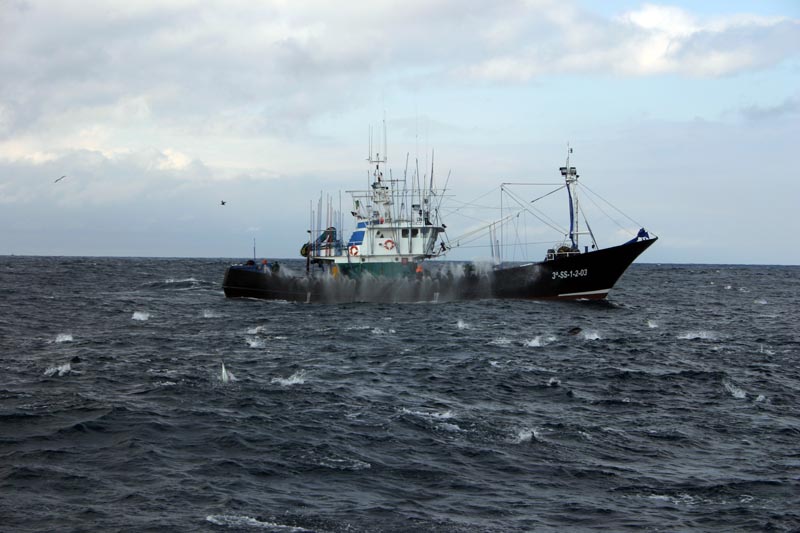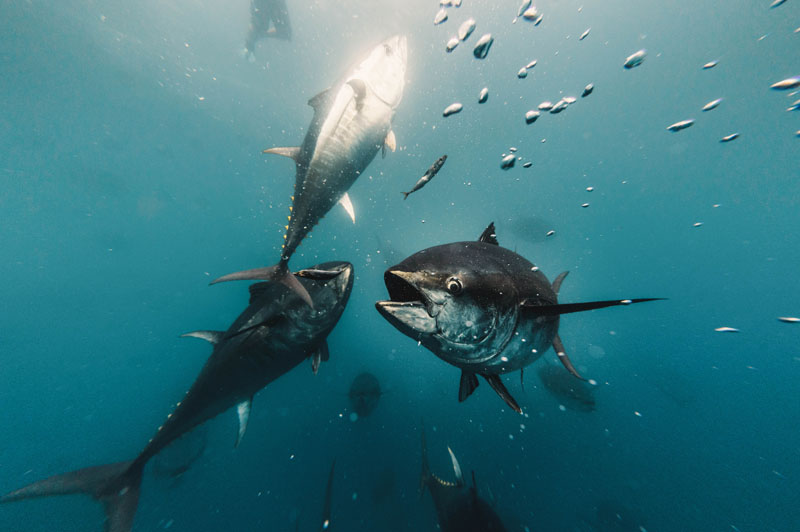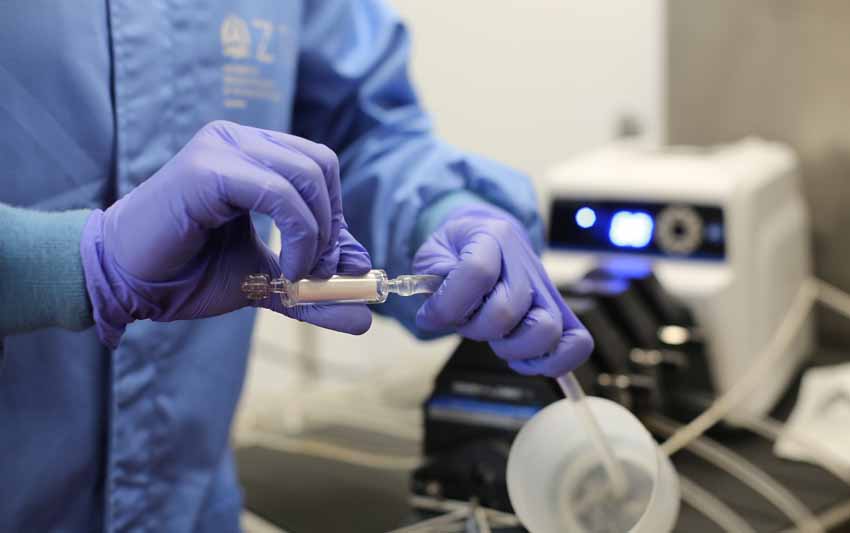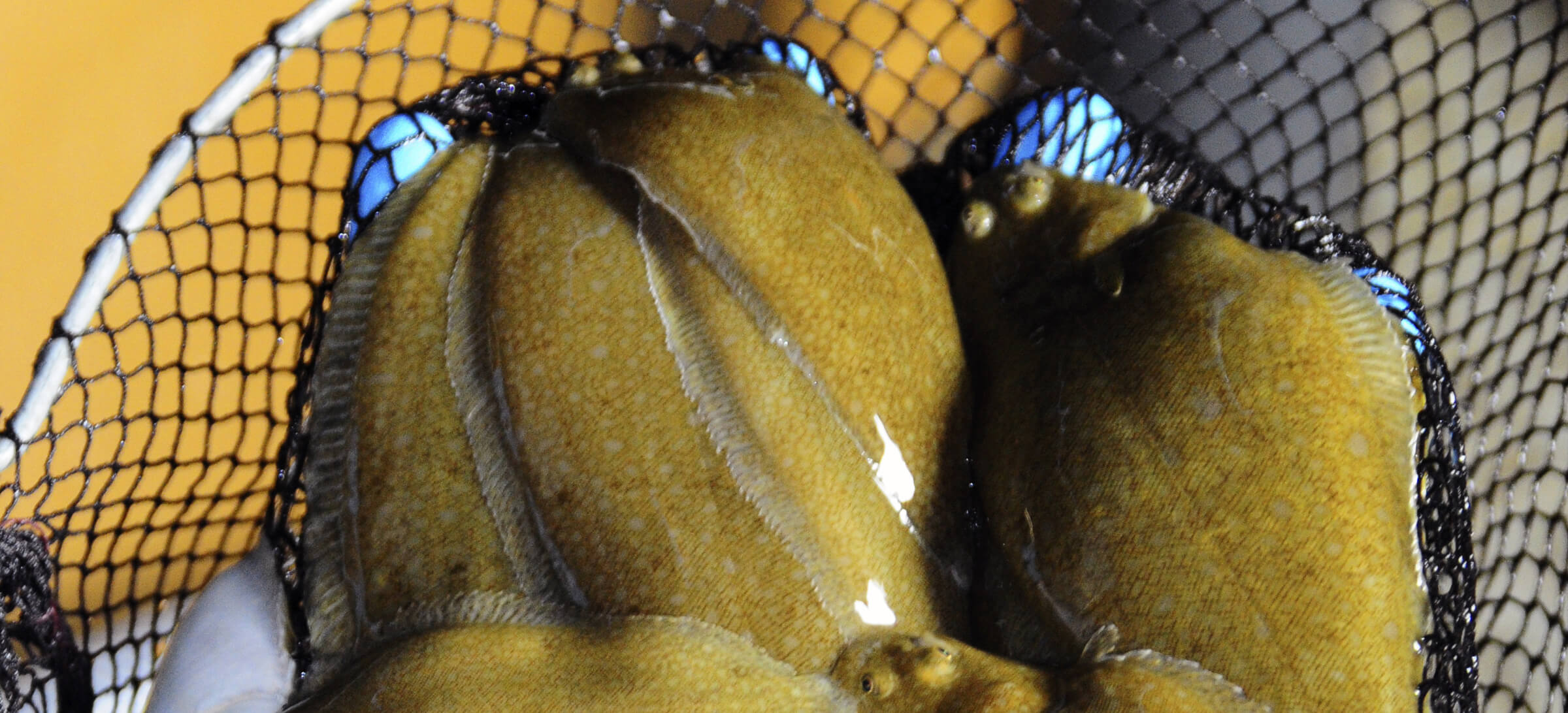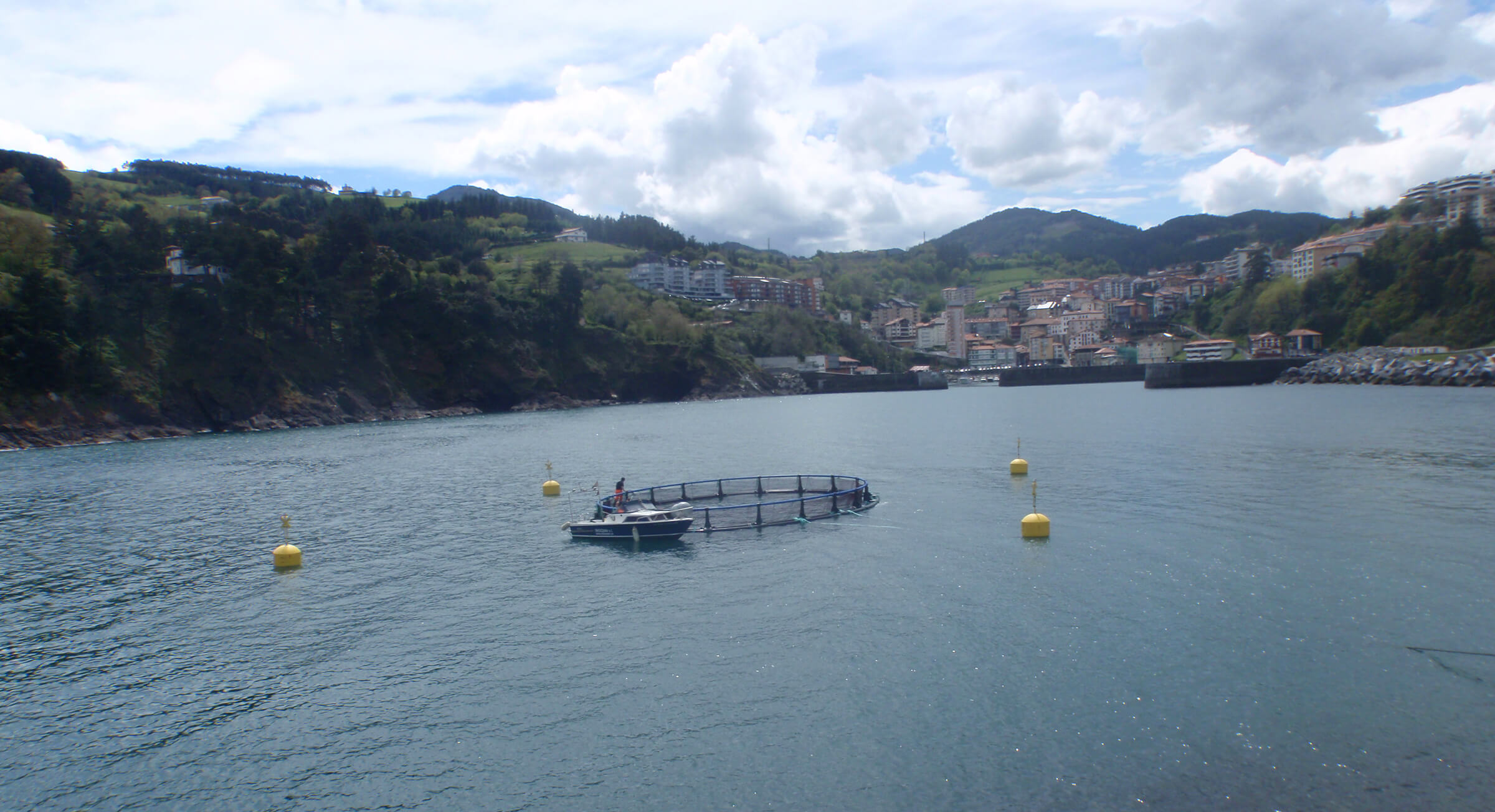Marine Governance: Integration of fishery and scientific knowledge
For the design of new technologies and the search for solutions to reduce incidental fishing
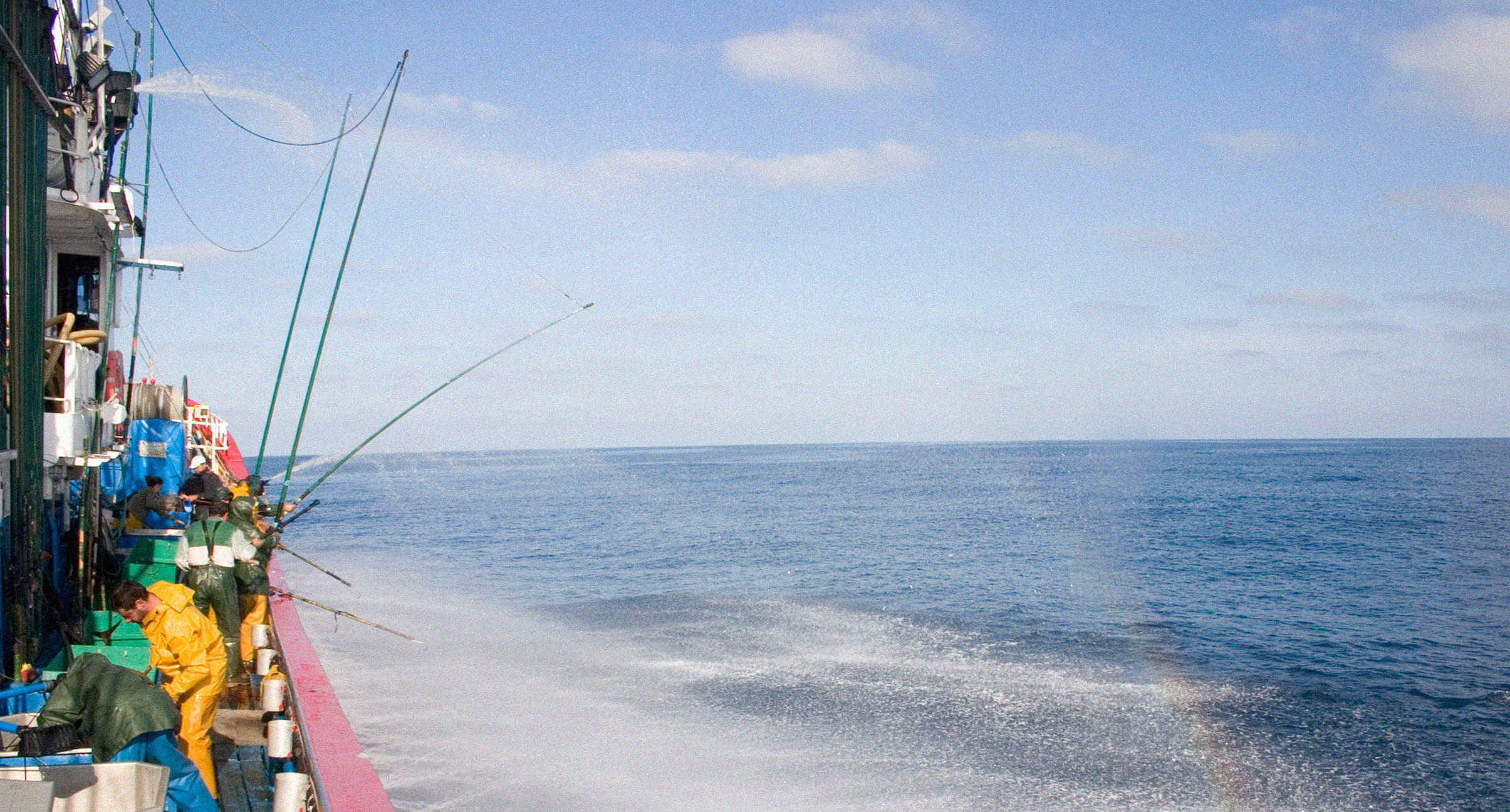
Our researchers are working on:
- Collecting empirical knowledge from fishers on:
- Behaviour of target and non-target species (spatial distribution, dynamics and ethology).
- The abiotic and biotic environment related to the target species.
- Performance of fishing gears and technologies.
- Fishing strategy and tactics.
- Generation of artisanal fisheries’ data provision networks through online devices.
- Complementary scientific studies to the empirical knowledge of fishers:
- Tagging and acoustic monitoring of species in order to understand their behaviour.
- Environmental satellite information.
- Information of traditional fishing grounds and historical and current value.
- Net monitoring using acoustic sensors, cameras and computer simulation.
- Testing of prototypes for the most selective fishing gears and technologies.
- Training and certification workshops on sustainable resource management practices for fishers:
- Handling practices to release sensitive species (e.g. sharks and turtles).
- Exchange and debate on scientific knowledge related to the status of the resource.
- Potential mitigation measures for non-target catches.
- Advances in fishing technology to reduce incidental fishing.
- Workshops among mixed interest groups in fisheries (ship owners, NGOs, scientists, fishers, etc..), to work towards sustainable fishery management.
Integrating fishermen’s information in the analysis of fisheries leads to a better assessment and handling of the commercial populations
Advantages
For the Fisheries Sector:
- Reduce undesirable incidental fishing, due to its limited economic value and the generation of restrictions and regulations.
- Integration of proposals from the fishing sector for decision making.
- Certificate fishers in sustainable fishing practices (for programmes such as Proactive Vessel System, eco-labelling, etc.) (short-medium term).
- Scientific verification of the implementation of good practices and reduction of environmental impact (e.g. the limited impact of FADs on turtle populations).
- Improve the public image of the fisheries sector before institutions, NGOs, consumers, market (medium-long term).
- Improved sustainability of the fishery resource (long term).
For Scientists:
- Increase knowledge of the fishery resource (behaviour, status, etc.) (short-medium term).
- Increase knowledge of the fishing gear, strategy and tactics (short term).
- Improve communication with the fisheries sector (short-medium term).
- Understand the status of the resource in the past (before data collection) (short-medium term).
- Reduce the uncertainty level on the real status of the tuna resource and its ecosystem (short-medium term).
- Reduce the number of scientific hypotheses to be tested at sea, and hence, the economic resources needed to do so (short term).
- Identify research areas of interest for scientists and fishers (short term).
- Greater acceptance and understanding of regulatory measures by the fisheries sector (long term).
For Society:
- Guarantee the market and consumers that the product comes from selective fisheries (short-medium term).
- Improve the sustainability of fishery resources (long term).
Applicable sectors
- Fisheries sector.
- Fisheries Commissions
- Public administrations and official bodies.
- All parties interested in fishery sustainability: NGOs, fish canning industries, markets, scientific community, etc.
Experience
- More than 30 years of close cooperation with the fisheries sector (artisanal, coastal and offshore fleets) working with the empirical knowledge of fishers.
- Multi-disciplinary work team, specialised in fisheries technology, eco-ethology of species of interest and fisheries management, which works with the fisheries sector from extraction through to fisheries management.
- Members of expert committees in fisheries management and mitigation of fishery adverse effects.
Implementation
Timeframes vary greatly depending on the study to be carried out, which requires interviews or workshops with expert fishers in the field of knowledge in question and, where appropriate, scientific data collection in this field of knowledge. A report will then be drafted with the results, which will be communicated to both the fisheries and scientific sector, if appropriate.
Proven track record
- The anchovy capture rules are defined by the fishing sector itself, as well as the safeguards that ensure the sustainability of this species.
- Measures to improve the selectivity on board of trawlers defined and tested by the fishing sector for the reduction of discarding of unwanted species.
